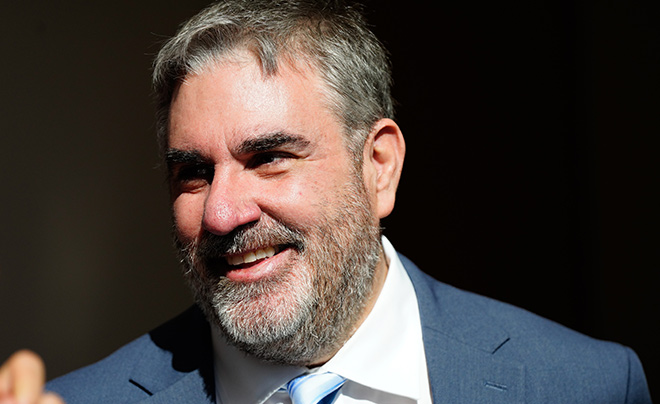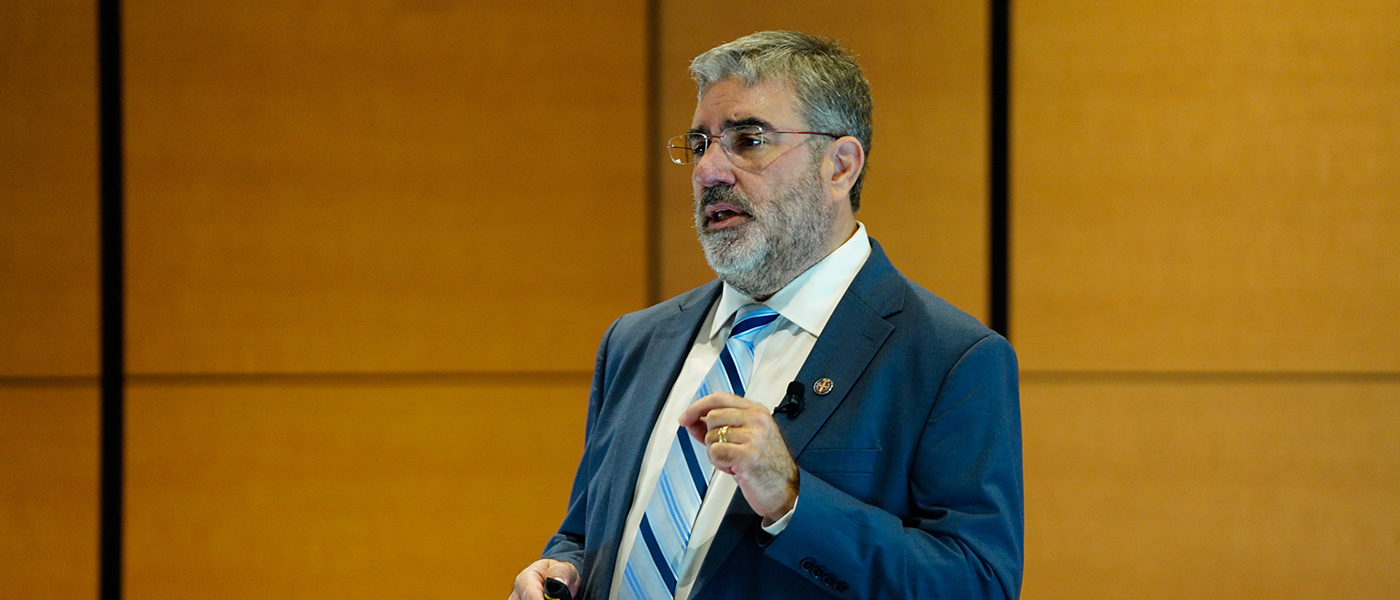By Dr. Javier Clavere
Rev. Mother Pierre Cinquin, during the founding years of the Congregation, advised the Sisters, “In all of our works, the glory should be for God, the utility for others, and the trouble for ourselves.” In this profound statement, Mother Cinquin outlined the basis for the charism of our institution and encapsulated our Mission to serve others. This charism should accompany and enlighten us on our educational and transformational journey, allowing us to mirror the Sisters’ cultural values and behaviors, educational philosophy, and sense of social justice. “A life for God, and a heart for others.”
 At the College of Humanities, Arts, and Social Sciences (CHASS), we are honored to house our Mission, identity, and charism, compelling us to continue striving to model by example the incarnational word, incarnational love, and incarnational peace, enacted so humbly and brilliantly by the congregation. It is both a privilege and a profound responsibility to be entrusted with this Mission as part of our endeavors at the University; to provide emotional, social, and spiritual support to others in an educational, academic, and transformational environment.
At the College of Humanities, Arts, and Social Sciences (CHASS), we are honored to house our Mission, identity, and charism, compelling us to continue striving to model by example the incarnational word, incarnational love, and incarnational peace, enacted so humbly and brilliantly by the congregation. It is both a privilege and a profound responsibility to be entrusted with this Mission as part of our endeavors at the University; to provide emotional, social, and spiritual support to others in an educational, academic, and transformational environment.
In honoring this privilege, CHASS has designated this year as the “Year of Dignity.” As part of a larger project, we are highlighting one of the core components of the Catholic Tradition of Inquiry: A reverence for the dignity of each human being as one created in the image of God. We have invited the whole university community to participate in reading, “Dignity: Its Essential Role in Resolving Conflict,” by Donna Hicks. In this project, we will seek opportunities for practicing and refining the three acts that manifest the dignity of others: Radical Hospitality, Radical Inclusivity, and Radical Accompaniment.
As a student of Stoicism, one learns that the practice of virtue is a sure path to achieving eudamonia (good spirit or happiness), by the continued practicing of certain virtues in everyday life. Concomitantly, in Christianity, the path to holiness is a constant process of developing self-awareness that requires continued practice and commitment. As with any practice, for example, practicing a sport, a musical instrument, or any creative activity, we are required to take specific and concrete steps to increase our ability and agility to perform at the highest possible level. Performance at high levels requires a keen self-awareness coupled with repetition to ensure that our newly refined habits become automatic. We are called to be coachable.
Three acts are fundamental in our path to self-awareness and holiness.
The first act, “Radical Hospitality,” calls us to meet the needs of others before they are evident, becoming incarnational in our service to others, caring for them, and providing spiritual shelter. In Matthew 25:35 Jesus tells us, “For I was hungry and you gave me food, I was thirsty and you gave me drink, I was a stranger and you welcomed me, I was naked and you clothed me, I was ill and you cared for me, I was in prison and you visited me.” It is the practice of uplifting others, wanting to understand their struggles without judgment, seeing in each person the face of God, and offering space in our empathetic presence to offer acceptance and a welcoming embrace.
The second act, “Radical Inclusivity,” echoes the words of Jesus in Matthew 22:39, “You shall love your neighbor as yourself.” It is the practice of including everyone, as Pope Francis calls us, to preach mercy, compassion, and forgiveness, rather than stern admonishments, and condemnations. It is in the act of welcoming others that the expression of God’s love is manifested. Openness and welcome are the true measures of our ability to incarnate inclusivity.
The third and final act, “Radical Accompaniment,” requires great faith, a sense of strong hope in God, and the willingness to bear wrongs patiently and to forgive. As Pope Francis explained, “Someone good at such accompaniment does not give in to frustration or fears.” Housed within this act of accompaniment is the idea of walking alongside other people on their journey, helping them along the way on their path to holiness.
These three acts pose questions that we must ask ourselves: How do we practice hospitality, inclusivity, and accompaniment to become incarnational in our educational vocation? How do we practice, as with any sport, to become models of holiness? How coachable are we in our spiritual improvement?
My earlier experience as a concert pianist required a sacrifice of tens of thousands of hours determined to perfect my craft, never attaining perfection, by striving for excellence, nonetheless. In a similar way, I continue to apply myself with the same intensity and willingness to be the model of a coachable individual who is in a constant learning mindset; to continue striving to reach for the unreachable, which I am only hopeful of imitating, even if it is mostly poorly, the example of the lives of the Sisters of the Incarnate Word, and the teachings of Jesus Christ. May we accompany each other in the community on our journey to become incarnational signs of love, peace, and justice.



